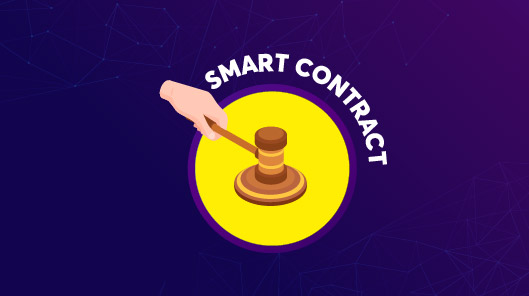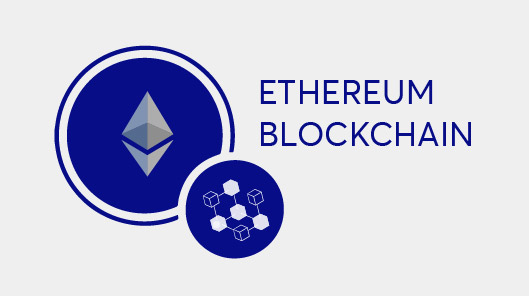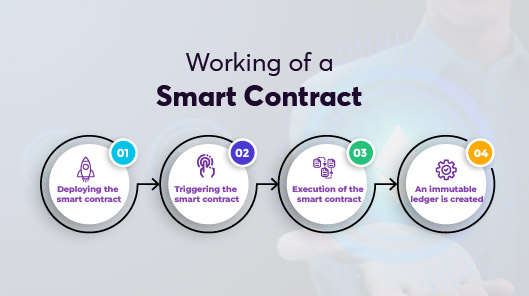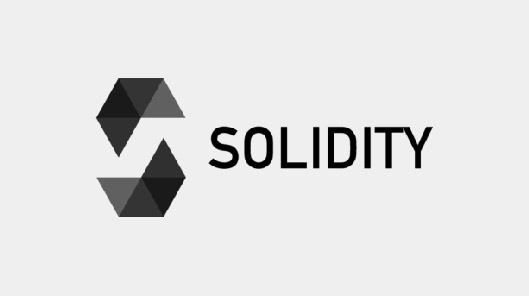First proposed by Gavin Wood, CTO of Ethereum, in 2014, Solidity is an object-oriented, high-level programming language for writing smart contracts on the Ethereum blockchain. Although other languages like Vyper, Bamboo, LLL, Serpent, etc., were used for writing smart contracts on the Ethereum blockchain, Solidity was quick to gain traction in the market.
So, what led to the growing popularity of Solidity? Its swift acceptance can be attributed to a few key factors.
- The similarity in syntax to programming languages like C++, Python, and JavaScript
- Increased interest in blockchain technology
- Flexibility & Versatility
- Availability of a strong developer community
- The growing popularity of the Ethereum ecosystem
Before we dive deeper into Solidity and its significance, let’s first have a look at smart contracts.
What Is a Smart Contract and How Does It Work?
A smart contract in a blockchain is a self-executing contract with the terms of the agreement written directly into code and stored on a blockchain network.

Smart contracts are created using programming languages like Solidity and are stored on a blockchain. They can be used to facilitate, verify, and enforce the negotiation or performance of a contract. They allow for the automation of contract execution and enforcement, which means that once certain conditions are met, the contract will execute itself automatically.
For example, imagine a smart contract that governs the purchase of a car on a blockchain network. The contract would be programmed with the terms of the sale, such as the price, the vehicle’s make and model, and the buyer’s and seller’s identities.

The buyer would then transfer the agreed-upon amount of cryptocurrency to the smart contract, and the contract would automatically transfer ownership of the car to the buyer and release the funds to the seller. This entire process would be transparent, traceable, and secure, as it is recorded on the blockchain.
In summary, smart contracts in blockchain are digital contracts that contain the rules, penalties, and the parties involved in an agreement, with the code and the agreements contained therein existing over a decentralized blockchain network.
Now that you have a brief overview of smart contracts, let’s have a look at the basics of smart contracts on the Ethereum network.
Ethereum Network & Smart Contracts
Ethereum is a decentralized, open-source blockchain platform that enables the creation of smart contracts and decentralized applications (dApps). Smart contracts on the Ethereum network are written in the programming language Solidity and are stored on the Ethereum blockchain.

Here is an overview of how smart contracts work on the Ethereum network:

- A developer creates a smart contract using Solidity and deploys it to the Ethereum blockchain. The contract is stored on the blockchain and is accessible to all participants on the network.
- Once the contract is deployed, it can be interacted with using Ethereum’s native cryptocurrency, Ether (ETH). The contract contains a set of rules and conditions that dictate how it will execute. These rules can be triggered by external events or by other contracts.
- When a user wants to interact with the contract, they must send a transaction to the contract’s address on the Ethereum blockchain. This transaction includes any data or instructions required to execute the contract.
- The contract’s code is executed on the Ethereum Virtual Machine (EVM), which is a decentralized execution environment that runs on the Ethereum network.
- Once the contract’s code is executed, the results are recorded on the Ethereum blockchain, providing an immutable record of the transaction. The smart contract can also be interacted with by other contracts, which is called contract interaction, in which a contract can call or trigger another contract to execute its code.
In summary, smart contracts on the Ethereum network are self-executing contracts that are stored on the Ethereum blockchain and written in the programming language Solidity. They can be used to facilitate, verify, and enforce the negotiation or performance of a smart contract.
Understanding Solidity – The Key Features of Solidity
Solidity is a high-level programming language designed for developing smart contracts on the Ethereum blockchain. It was developed by the Ethereum Foundation to enable developers to create dApps that can run on the Ethereum network.

1. Object-Oriented Programming Model
One of the key features of Solidity is its contract-oriented programming model, which allows developers to create self-executing contracts that have the terms of the agreement written directly into the code. This capability allows for the transparent, tamper-proof, and autonomous execution of agreements.
2. Familiar Syntax
The syntax of solidity, inspired by JavaScript, is designed to be easy to learn for developers with a background in object-oriented programming languages like C, C++, and Java, making it a popular choice among developers.
For a developer with experience in object-oriented programming languages, it won’t be difficult to learn Solidity. It is important to understand, however, that though Solidity looks similar to JavaScript, it’s a completely different beast under the hood.
3. Larger Developer Community
Solidity has a larger developer community with experienced Solidity developers who can help answer questions and provide guidance. This resource can be especially useful for developers who are new to blockchain development or who are working on a particularly complex project.
A large developer community also means a lot of open-source libraries and frameworks are available to developers, which can make development faster and more efficient. As a result, developers can focus on the unique aspects of their projects and not have to worry about building everything from scratch.
4. Availability of Tools & Frameworks
Due to its popularity and widespread use, Solidity developers can choose from many tools and frameworks such as Truffle, Embark, DappHub, OpenZeppelin, Mythril, etc. These tools and frameworks can help developers to streamline the development process, improve the security and reliability of their smart contracts, and interact with the Ethereum blockchain more easily.
What Are the Skills Required for a Solidity Developer?
Solidity is a programming language that is used to write smart contracts for the Ethereum blockchain. To be a successful Solidity developer, one should have the following skills
- Strong knowledge of blockchain technology and the Ethereum ecosystem: A solid understanding of blockchain technology and its workings is essential for creating secure and efficient smart contracts.
- Proficiency in the Solidity programming language: A Solidity developer should have a strong understanding of the Solidity programming language and its syntax, data types, and best practices.
- Experience with smart contract development: Solidity developers should have experience designing, developing, and deploying smart contracts on the Ethereum blockchain.
- Familiarity with web3.js library: Web3.js is a JavaScript library that allows developers to interact with the Ethereum blockchain. Solidity developers should be familiar with this library to interact with the smart contract they created.
- Knowledge of smart contract security best practices: Security is a critical concern when developing smart contracts. A Solidity developer should have a good understanding of smart contract security best practices, such as how to avoid common vulnerabilities and how to perform security audits.
- Experience with development tools: A Solidity developer should have experience using development tools such as Truffle, Embark, and OpenZeppelin, which are commonly used to streamline smart contract development.
- Familiarity with Git and version control: A Solidity developer should be familiar with version control systems such as Git, as they are essential for tracking changes to code and collaborating with other developers.
Strong problem-solving skills: A Solidity developer should have strong problem-solving skills to identify and resolve any issues that arise during the development process.
Solidity – The Go-to Language for Blockchain Development Projects
Solidity is a powerful and flexible programming language that is well-suited for developing smart contracts on the Ethereum blockchain. With its user-friendly syntax and extensive support for complex data structures, Solidity makes it easy for developers to create, test, and deploy smart contracts that can automate complex business processes and bring transparency and trust to a variety of applications.
In addition to its robust feature set, Solidity also benefits from a large and growing developer community, who contribute to the language’s ongoing evolution and share best practices and tools for working with it. Whether you are a seasoned developer or just getting started with blockchain development, Solidity provides a solid foundation for building innovative and secure blockchain applications.
